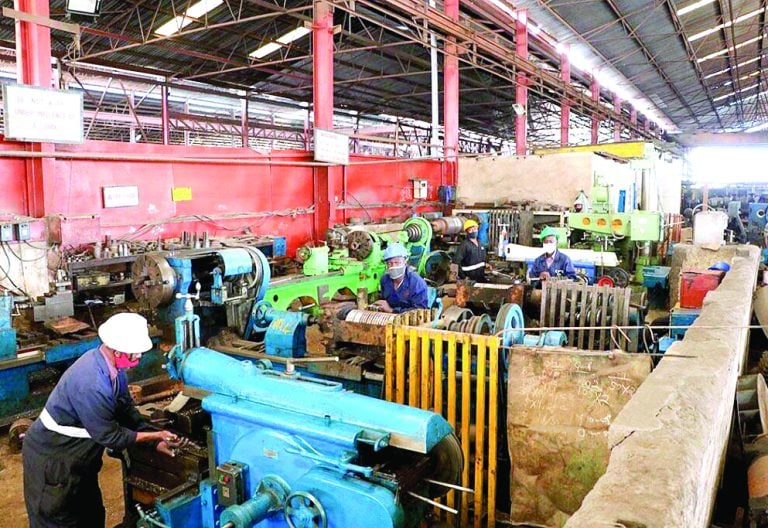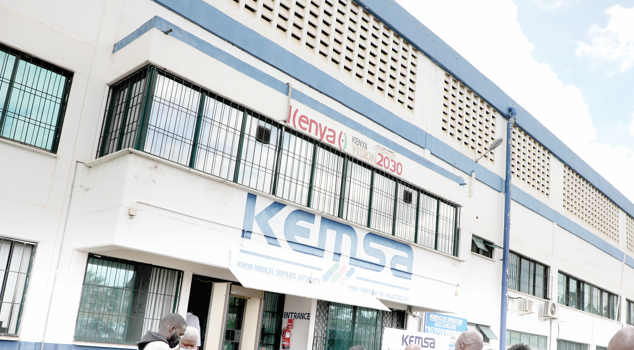Industries are manipulating own data, cautions Trade CS

The State believes that manufacturers have been intentionally submitting inconsistent data to different institutions, making it difficult to provide effective support to the struggling sector.
This is after Industry, Trade, and Investment Cabinet Secretary Lee Kinyanjui criticised the Kenya Association of Manufacturers (KAM) for this practice, stating that the inconsistencies have hindered the government’s ability to make informed policy decisions.
Speaking at the launch of the KAM Manufacturing Priority Agenda for 2025, Kinyanjui said manufacturers maintain multiple sets of financial records, presenting different figures depending on the institution requesting the data.
This discrepancy, he said, has made it nearly impossible for the government to assess the sector accurately and implement the right interventions.
Lack of credible data
“The data that you provide to the government does not reflect the reality on the ground. The lack of credible data makes it difficult for the government to make precise decisions,” Kinyanjui said.
He emphasized the need for reliable and standardised information to guide policy formulation and ensure targeted support for the sector.
Speaking at the same venue, KAM Chief Executive Officer Tobias Alando urged the government to implement policies that enhance the global competitiveness of the manufacturing industry.
He called for a more predictable tax environment that fosters business growth, focusing on export competitiveness, small and medium enterprise (SME) development, and regulatory reforms that support industrial expansion.
Generated customs revenue
Despite facing a downturn, the manufacturing sector continues to contribute significantly to the economy.
Between January 2023 and January 2024, the industry generated customs revenue totalling Sh230 billion, with an average monthly contribution of Sh17.7 billion.
However, KAM argues that the government has stifled growth by delaying the refund of Value Added Tax (VAT) to manufacturers, which currently stands at Sh 15 billion.
Manufacturers have been advocating for VAT refunds amounting to Sh4 billion per month, but the National Treasury has allocated only Sh2.5 billion per month, slowing down manufacturing activities.
VAT refunds are meant to ensure that businesses are not double-taxed on imported raw materials used in export production. Many of these products are not consumed locally, meaning the government should not impose taxes on them.
“The law provides for a refund on input VAT, ensuring businesses are not unfairly taxed on goods destined for international markets.
In theory, this system should work seamlessly. However, in reality, it has become an endless waiting game,” Alando said.
The delayed refunds have strained manufacturers’ cash flow, affecting their ability to pay suppliers, employees, and other business expenses.
Alando compared Kenya’s VAT refund system to those in other countries, highlighting the efficiency of tax administration elsewhere.
For instance, South Africa processes VAT refunds within 21 days through a real-time risk assessment system that fast-tracks low-risk claims.
Singapore has automated most of its VAT refund processes, ensuring businesses receive payments within 30 days. Egypt refunds VAT within 45 days, demonstrating how a structured tax administration can support exporters.
The Kenyan manufacturing sector has also suffered from unpredictable tax policies, making it expensive to do business. KAM’s report emphasized that an unstable tax regime discourages investment and hinders private-sector growth.
National tax policy
“To create a globally competitive manufacturing sector in Kenya, we need a stable and predictable policy environment.
This can be achieved through strict adherence to the National Tax Policy, which aims to ensure a stable tax framework with major tax changes introduced only once every four years,” Alando said.
The report also examined how countries like Vietnam have successfully grown their manufacturing industries.
In 2024, Vietnam’s total manufacturing value added was estimated at $109.90 billion ( Sh 14.18 trillion), with a projected compound annual growth rate of 8.78% between 2024 and 2028.
Vietnam has implemented business-friendly policies that create a stable environment for private-sector growth.
The country’s low labour and production costs attract foreign direct investment (FDI), fostering industrial expansion.
While Kenya, South Africa, and Egypt have experienced stagnation or decline in their manufacturing GDP contributions, Vietnam’s share has steadily increased, particularly between 2010 and 2022.
“Vietnam offers valuable lessons for Kenya in promoting industrialization. Their government’s commitment to supporting manufacturers through favourable policies and a stable business environment has led to significant economic growth,” the report stated.












